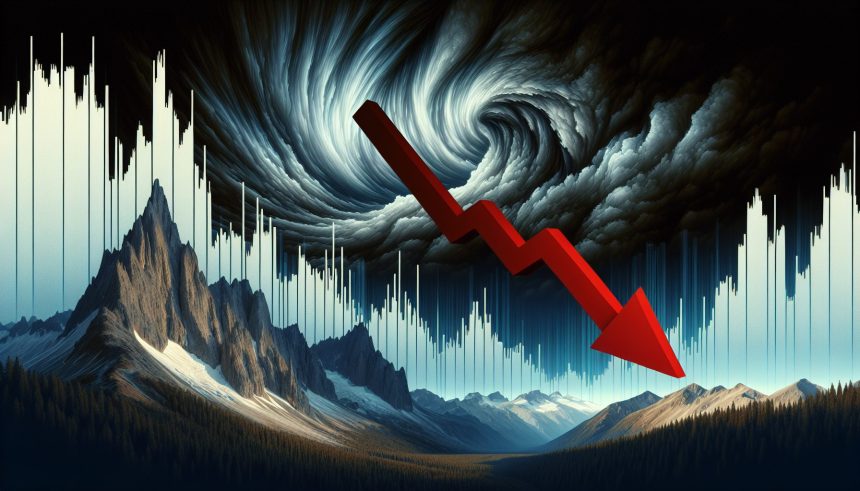U.S. stocks tumbled on Thursday as President Donald Trump’s trade war with China escalated. The Dow Jones Industrial Average fell 1,015 points, or 2.5%, while the S&P 500 dropped 3.46% and the Nasdaq Composite slid 4.31%. The sell-off came after the White House clarified its plan for a massive 145% tariff on Chinese imports.
Although Trump paused most of his “reciprocal” tariffs, his other import taxes have already inflicted significant damage on the economy. The U.S. dollar index also tumbled 1.7% to its lowest level since early October, a sign of investors’ concern about the health and stability of the U.S. economy. Gold prices hit a fresh record high above $3,170 a troy ounce as investors sought safe havens amid the turmoil.
Economists warned that the damage to the economy is already done, even after Trump’s temporary tariff reprieve. Goldman Sachs said the chances of a U.S. recession were still a coin flip, while JPMorgan maintained its 60% probability of a U.S. and global recession.
U.S. stocks tumble amid tariff woes
“My sense here is that the (US) economy is still likely to fall into recession, given the level of simultaneous shocks that it’s absorbed,” said Joe Brusuelas, chief economist at consulting firm RSM. Meanwhile, the trade war with China showed no signs of abating. Goods from China now face at least a 145% U.S. tariff, while China’s retaliatory 84% tariffs on U.S. imports also took effect.
A Chinese Commerce Ministry spokesperson said China remains willing to negotiate but will not back down if Trump further escalates the conflict. The bond market also reflected the ongoing stress, with the 10-year Treasury yield cooling off slightly after surging past 4.5% earlier in the week. Oil prices remained under pressure, with U.S. oil falling below $60 a barrel and Brent crude dropping 4% to around $63.
Despite the turmoil, global markets recovered sharply on Thursday. Japan’s Nikkei 225 index finished more than 9% higher, South Korea’s Kospi index rose 6.6%, and Hong Kong’s Hang Seng index jumped 2.1%.







